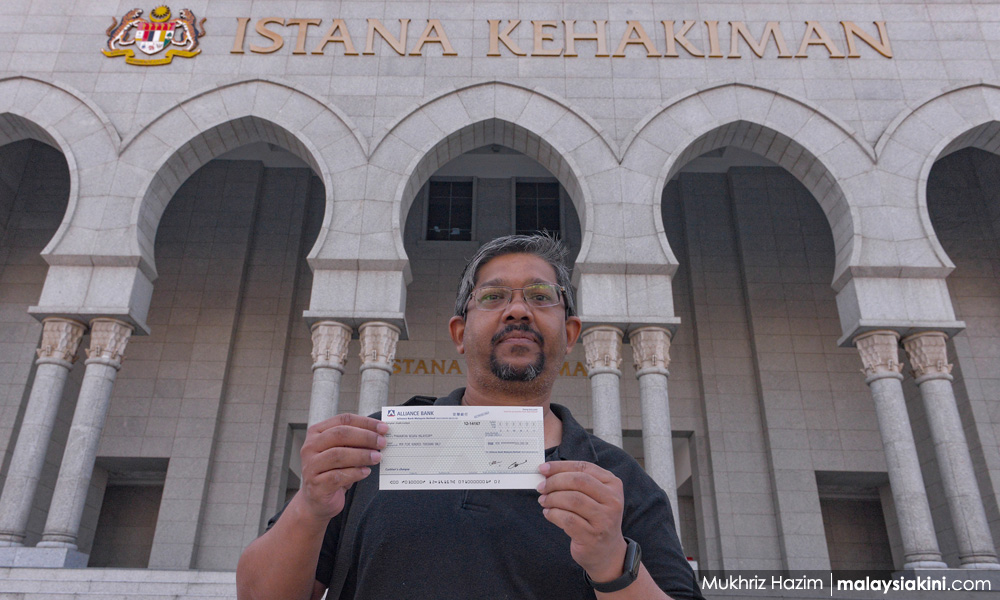Choosing to spend the Deepavali break at home instead of packing up for a pandemic-flirting vacation provided the latitude for some Netflix indulgence. Topping the list of shows to watch was the third season of Narcos: Mexico.
To the uninitiated, the crime drama is centred around Mexico's powerful drug cartels, who with the help of corrupt politicians and authorities, amassed enormous fortunes at the expense of a long trail of corpses.
The latest season also highlighted the courageous exploits of a local newspaper called La Voz (The Voice) in Tijuana, which is the home turf of the Arellano-Félix Organization or better known as the Tijuana cartel.
Although La Voz is fictional, it is said to be inspired by a real Tijuana-based magazine, Zeta, which was founded in 1980.
The magazine is known for its exposes on corruption in local and federal governments as well as on organised crime and drug trafficking, resulting in numerous threats and attacks against its staff.
Two of its founders, Hector Felix Miranda and Francisco Ortiz Franco, have been murdered. The former by the bodyguards of a local politician in 1988 and the latter by masked gunmen in front of his children in 2004.
In Kuala Lumpur, some 14,000km from Tijuana, Malaysiakini's founders Steven Gan and Premesh Chandran are still alive and kicking.
However, it has not been a walk in the park for Malaysia's first independent news outlet.
Although Gan and Premesh did not have to dodge bullets unlike their compatriots in Mexico and in some other parts of the world, the pair faced numerous hurdles in their mission to break the government's stranglehold on information when Malaysiakini was established in 1999 at the height of the Reformasi era.

The then prime minister Dr Mahathir Mohamad's administration launched a propaganda offensive against Malaysiakini, linking it to billionaire George Soros.
In 2001, national news agency Bernama quoted him as stating: “… these people [Malaysiakini] really behave like traitors, asking foreigners to harm their own country.”
“People who love Malaysia would not support Malaysiakini,” he added.
When the attacks intensified, Gan and Premesh called for a meeting with the staff to discuss contingency plans should the Internal Security Act (ISA) be invoked against them. Things like who should take over the reins in their absence and where to operate from if the office is raided were explored. It included details such as appointing additional authorised signatories to sign company cheques.
The objective was simple. Malaysiakini must continue to operate.
A watchdog, not a lapdog
Mahathir's displeasure was understandable. Malaysian politicians and those in positions of power were not accustomed to being grilled or having their transgressions published. That was an era when press statements from opposition leaders landed in the dustbin and dissenting voices found themselves behind bars.
Malaysiakini, however, was a different creature altogether. While a simple phone call ensured compliance with others, this fledgling news portal refused to sit, shake hands or play dead when ordered.
Malaysiakini preached an alien principle called press freedom and therefore, its detractors, who often confuse patriotism with toeing the government's line, believed it must have diabolical motives.
The threat of arrest and closure resurfaced when the 1MDB scandal broke and former premier Najib Abdul Razak, who had sued Malaysiakini in 2014 over readers' comments and must have kicked himself for repealing the ISA, came down hard on critics.
Once again, meetings were held to discuss the next course of action in the event of a crackdown.
After the 2018 general election, which in a strange twist of fate witnessed Mahathir leading Pakatan Harapan to capture Putrajaya, Malaysiakini, which was often referred to as an opposition mouthpiece, remained true to its cause and continued to hold the short-lived new government to account.
Over the past two decades, hundreds of police reports have been lodged against Malaysiakini, countless investigation papers opened, a slew of statements recorded.
Apart from this, there is a deluge of legal actions as well.
Last year, the Federal Court slapped Malaysiakini with an RM500,000 fine over its readers' comments. In March this year, Umno president Ahmad Zahid Hamidi filed an RM220 million defamation suit against the news portal.

Regardless of the obstacles, threats and lawsuits, Malaysiakini pledges to continue serving as the nation's sentinel, safeguarding it against corruption and abuse. Always a watchdog, never a lapdog.
But in the absence of well-heeled funders with political or business agendas that could compromise editorial integrity, Malaysiakini, which is celebrating its 22nd anniversary, needs your support to remain as your ‘voice’, La Voz.
In conjunction with our 22nd anniversary, save 22 percent on Malaysiakini subscription or gift a subscription to someone and support independent media.
RK ANAND is executive editor of Malaysiakini.

